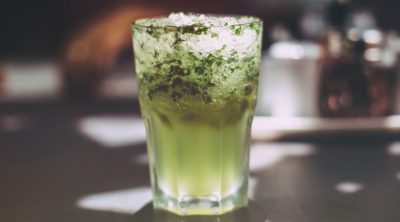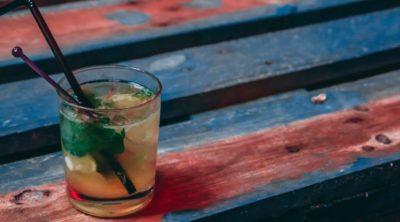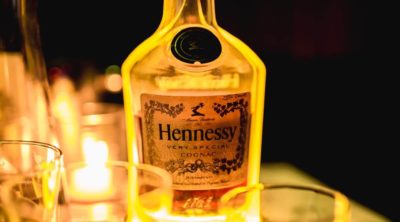
Champagne is a popular drink which makes celebrations special, and if you aren’t celebrating, it just makes for some very good company. But how much do you know about Champagne and its best brands? Let’s get some help…
What is the first thing that comes to your mind when you think of Champagne? A light gold-colored sparkling wine? That’s true. That’s what most of us think of. But do you know that not all sparkling wine can be called Champagne? Truth is, the wine should ideally be called Champagne only if it is produced in the region of Champagne in France. Strangely though, a lot of people do not know this, hence, getting carried away by believing that any sparkling wine is in fact Champagne. Well, now you know not to believe that. The authenticity of this drink lies in where it comes from. What a lot of people also do not realize is that not all Champagne is good Champagne.
Good Champagne to Buy
Moët & Chandon: Founded in Épernay in 1743 by Claude Moët, Moët et Chandon is an eminent Champagne house. Responsible for the production of the ever popular Dom Pérignon, the wine that defines the term Prestige cuvée. you can rest assured that spending on wine from Moët & Chandon will be money well spent, just as much as well appreciated.
Veuve Clicquot: This Champagne house from Reims, France, has been around and popular since 1772. A well-known brand even today, Veuve Clicquot is undoubtedly one of the better known names when you think of authentic French wine.
Taittinger: Yet another brand name when discussing French in particular is Taittinger. Also from Reims, this Champagne house has been in existence since 1734, which makes it 280 years old.
Other popular names include, Perrier Jouët, Vilmart & Cie, Pol Roger, Krug, and Laurent Perrier, among several others. But what’s the point in knowing about all those Champagne houses if you don’t know what the best Champagne to buy is. Without further ado, we shall get to the best buys.
Prestige cuvée: A cuvée de prestige is supposed to be a top of the line wine. Any wine connoisseur will know that the 1921 Dom Pérignon from Moët & Chandon is the ultimate when speaking of prestige cuvée. More recent wines from this range are:
- Krug 1996 Clos d’Ambonnay: $2,250
- Henriot Cuvee des Enchanteleurs 1996: $215
- Moët & Chandon Dom Pérignon 2002: $200
- G.H. Mumm1998 Brut R. Lalou Cuvee Prestige: $150
- Ayala Cuvee Perle D’Ayala Millesime Brut 2000: $150
- Nicolas Feuillatte Palmes d’Or Brut 1999: $130
- Veuve Clicquot La Grande Dame 1998 Brut: $125
Rosé Champagne: It wouldn’t be wrong to say that the name of this wine is a giveaway in itself. Rosé tells all about the color of this wine. This pale pink wine gets its color by either adding a tad bit of Pinot Noir to the otherwise sparkling wine, or it is also done by getting the grape juice in close contact with the grape skin. Good Rosé Champagne to purchase are:
- NV Armand de Brignac Ace of Spades Rosé: $700
- Dom Pérignon Rosé Champagne: $387
- Taittinger Comtes de Champagne Rosé 2003: $350
- Veuve Clicquot Grand Dame Rosé Champagne 1998: $330
- Dom Ruinart Rosé 1996: $325
- Champagne Perrier-Jouet Fleur de Champagne Rosé 2002: $300
- Laurent Perrier Brut Rosé Champagne: $138
While the above mentioned were quite possibly on the pricier side for some, there is the option of picking from cheap brands just as well. The wines to follow are ones that will suit everybody’s pocket.
Affordable Brands
- Pol Roger Brut Chardonnay Extra Cuvée de Réserve (1998): $95
- Saint-Chamant Millésimé Brut Blanc de Blancs (1999): $80
- Gonet Medeville NV Blanc de Noirs: $60
- Saint-Chamant NV Brut Blanc de Blancs: $56
- Nicolas Feuillatte Brut: $50
- Collet Brut Rosé: $45
- Veuve Clicquot Non Vintage Brut Yellow Label: $35
- Perrier Jouet NV Grand Brut: $35
- Moet & Chandon Champagne White Star: $28
- Ariston Carte Blanche Brut Champagne: $23
With the given lists of Champagne, both expensive as well as affordable, I’m sure you will no longer be in a quandary regarding what to buy. So, take your pick from whatever you like, and enjoy. After all, Champagne is an all-occasion drink. As proof, you could refer to the words of Napoleon Bonaparte… “I drink Champagne when I win, to celebrate… and I drink Champagne when I lose, to console myself”.


